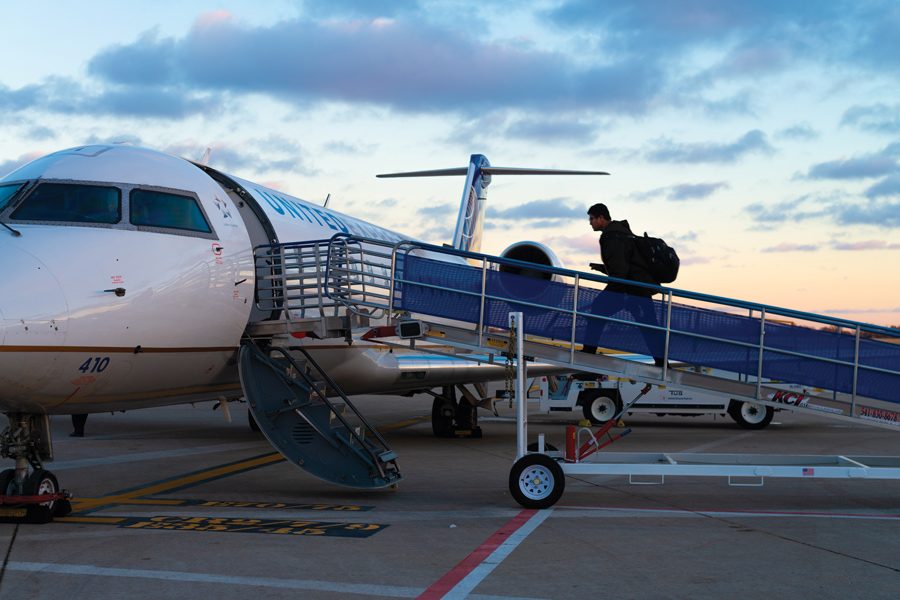Undergraduates struggle to return home to COVID-19 infected regions
Daily file photo by Noah Frick-Alofs
Students flying home for Spring Quarter say they may face more risk going to their home states and countries.
March 20, 2020
Despite Northwestern’s March 11 announcement of an extended spring break — where students were asked to leave campus following their final exams until further notice — for some, going home is not as simple as hopping in a car or on an airplane.
Many domestic students returning to states highly affected by COVID-19, also known as the novel coronavirus, say they are not necessarily safer at home than on campus.
“There was a time when my county had more cases than all Illinois combined,” said Medill freshman Shannon Coan, who is from San Mateo, California. “California has a lot more cases and was in ‘shelter-in-place’ before Illinois was, but I don’t think anywhere should be deemed safe at the moment.”
San Mateo, along with five other counties in California, is currently enforcing “shelter in place,” an order that asks everyone to stay home and away from other people in light of the coronavirus. Illinois Gov. J.B. Pritzker announced a “shelter in place” order in Illinois on Friday.
Coan said she was going home because of concerns that domestic flights might be banned in the future and that her parents wanted her home instead of “stranded in Illinois.”
After learning about the recent changes made to Winter Quarter finals, Weinberg junior Taylor Kesicki booked a March 17 flight to go back home to Westchester, New York.
Kesicki said he did not think Westchester would necessarily be more dangerous than Evanston, because they are both located in the suburbs of major cities. However, he said he will limit his traveling when he gets back home.
“I’ve got to take precautions, think about where I am going,” Kesicki said.
The price some international students pay for going home is even higher, and some chose to stay in Evanston.
McCormick junior Chengye Jiang decided not to go back to his home in Shanghai, China, for several reasons.
Jiang said that the risk of getting infected on the plane or at the airport was simply too high and that he did not want to take online classes with a 13-hours time difference.
In addition, if he were to go back to Shanghai, he would face 14 days of quarantine, possibly in a hotel. The plane tickets to China were also difficult to acquire and more expensive than usual, he added.
According to The New York Times, while China is by far the country with the most number of confirmed cases, there were no new local cases in China on March 19. Italy surpassed China on Friday as the country with the most number of deaths due to the novel coronavirus.
“I think Shanghai is way safer than any of the major cities or towns in the United States, because of all the measures that have been taken,” Jiang said.
Despite those obstacles Jiang mentioned, other Chinese international students at Northwestern University have opted to go home.
Weinberg freshman Ryan Zhang booked a plane ticket to Guangzhou, China for March 27.
Zhang said most of his classes were lectures and if the classes were recorded, he would watch the recordings at home. As for the quarantine, he would have his laptop and internet connection either at Evanston or in a quarantined hotel in China.
Zhang also said he was concerned about safety in the United States because no one is wearing masks.
“It took China two months to control the coronavirus (with strict measures) — I do not think that the United States will be able to control the virus in the next two months,” Zhang said. “So I am going home.”



